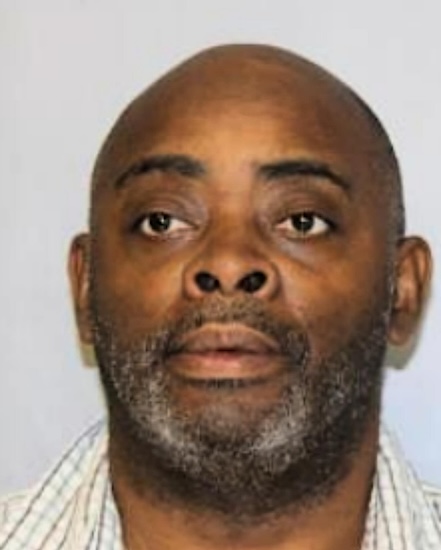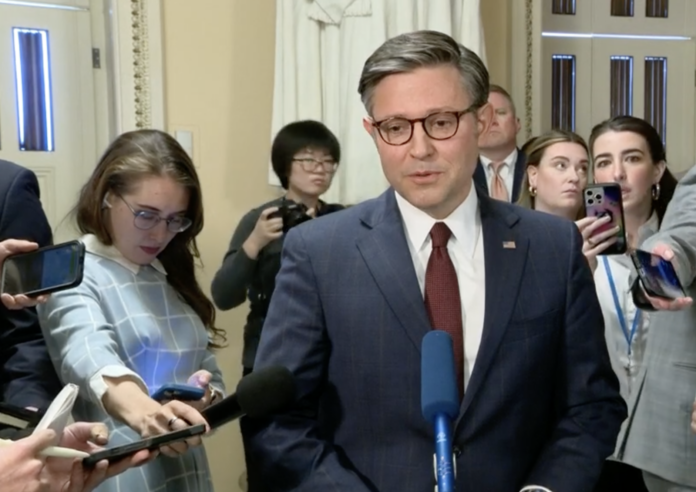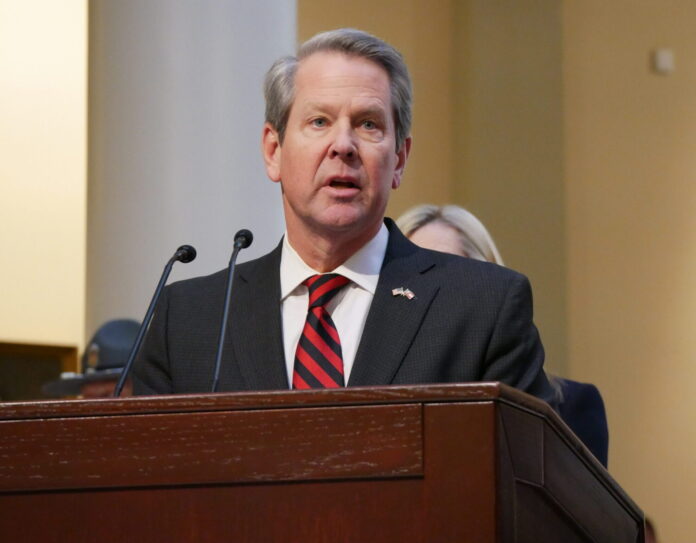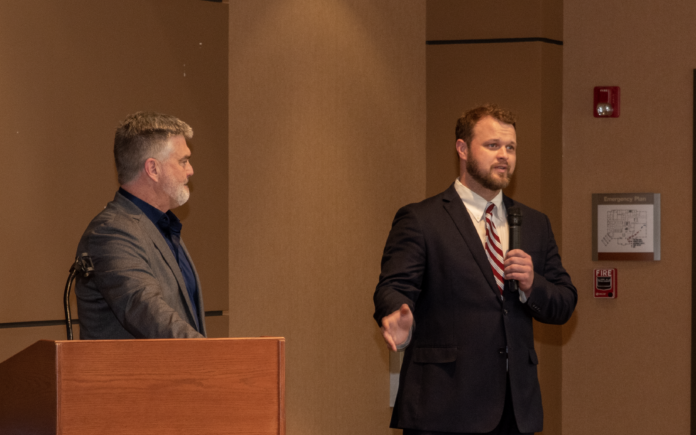WASHINGTON (States Newsroom) — Military and humanitarian aid could be on its way to Ukraine, Israel and Taiwan within weeks after the U.S. House took a series of overwhelmingly bipartisan votes Saturday to approve $95 billion in emergency assistance — and the Senate appeared poised to agree.
The approval in a rare weekend session ended months of deadlock. House GOP leaders struggled with whether they should block or provide aid amid ongoing wars in Israel and Ukraine as well as mounting concerns about China’s approach to Taiwan.
The decision to debate aid to Ukraine, and pass the bill with a majority of the yes votes coming from Democrats, presents a risk to Speaker Mike Johnson’s leadership role in the party, amid rising anger from far-right party members.
The three bills — as well as a measure to ban the popular app TikTok unless Chinese owner ByteDance sells it — now go to the Senate as one package, where leaders hope to vote on the legislation as soon as Tuesday.
President Joe Biden, who sent a supplemental spending request to Congress asking for the aid six months ago, is expected to sign the bill once it reaches his desk.
- House lawmakers supported $60.84 billion in additional assistance for Ukraine on a 311-112 vote, while cheering and waving small Ukrainian flags on the floor. One lawmaker voted “present.”
- Members voted 366-58 to approve the $26.38 billion Israel and humanitarian assistance bill.
- The $8.12 billion funding bill for the Indo-Pacific received backing on a 385-34 vote. One lawmaker voted “present.”
- The 21st Century Peace Through Strength Act that includes the TikTok bill passed following a 360-58 vote.
The three emergency spending bills will provide significant boosts in funding for the U.S. departments of Defense, Energy and State, which will use that money to help Ukraine, Israel and Taiwan as well as other allies.
Ronald Reagan cited repeatedly
Far-right Republicans railed against the bills, and the decision by Johnson, a Louisiana Republican, to hold a floor vote, while their colleagues in both parties said the funding would help protect democracies around the world, aid refugees fleeing war and bolster America’s defense industrial base.
GOP lawmakers repeatedly referenced former President Ronald Reagan’s “peace through strength” foreign policy strategy, choosing the party’s long-held standard-bearer over the isolationism championed by other leaders.
House Appropriations Chairman Tom Cole, an Oklahoma Republican, said the last few years have “produced echoes of a dark time in world history” that began nearly a century ago.
“In the 1930s, evil regimes bent on aggression, domination and even genocide took their first steps down a dark road that would eventually lead to world war,” Cole said. “Tragically, the democratic West turned inward then; standing idly by while fascist regimes began to take aggressive actions against their weaker neighbors.”
“There was time then to put a stop to aggression,” Cole added. “If only we had had the fortitude and the wherewithal to stand firmly on the side of freedom.”
Actions today by China with respect to Taiwan, Iran’s aggression toward Israel and Russia’s invasion of Ukraine stand as a modern threat to democracy, leaving a choice for the United States and other democracies, Cole said.
“Peace through strength cannot be delivered through appeasement,” Cole said. “We cannot wish our way to national security and we cannot thrust our heads into the sand while aggressive nations threaten their neighbors.”
U.S. defense of democracy
Connecticut Rep. Rosa DeLauro, the top Democrat on the House Appropriations Committee, said the emergency spending bills provided an opportunity for Congress to signal to the world that the United States defends democracies.
“We have a moment today to say ‘No’ to tyranny,” DeLauro said. “We have a moment to take back the moral high ground for the United States and say, ‘We do not walk away from an ally. We do not walk away from freedom. We do not walk away from human rights. We do not walk away from democracy.’ That is not the United States of America.”
Republican Rep. Marjorie Taylor Greene of Rome, Georgia, who is leading an effort to remove Johnson as speaker through a motion to vacate that so far has attracted two more backers, argued during debate that Congress should enact new border security and immigration policy instead of foreign aid.
“The federal government continues to fund the military industrial complex and this is a business model that requires Congress to continue to vote for money, to continue to fund foreign wars,” Greene said.
“And this is a business model the American people do not support,” Greene added. “They don’t support a business model built on blood and murder and war in foreign countries, while this very government does nothing to secure our border.”
Biden wrote in a statement released after the vote that the bills would “deliver critical support to Israel and Ukraine; provide desperately needed humanitarian aid to Gaza, Sudan, Haiti, and other locations impacted by conflicts and natural disasters around the world; and bolster security and stability in the Indo-Pacific.”
“It comes at a moment of grave urgency, with Israel facing unprecedented attacks from Iran, and Ukraine under continued bombardment from Russia,” Biden wrote.
Ukrainian President Volodymyr Zelenskyy thanked the House for passing the assistance in a social media post.
“Democracy and freedom will always have global significance and will never fail as long as America helps to protect it,” Zelenskyy wrote. “The vital U.S. aid bill passed today by the House will keep the war from expanding, save thousands and thousands of lives, and help both of our nations to become stronger.”
How the Ukraine aid would be spent
Nearly $48 billion of the $60.84 billion total for the Ukraine aid bill would go to the U.S. Defense Department to provide weapons and supplies for Ukraine’s military, to replenish stockpiles of weapons and other equipment sent to Ukraine and to bolster U.S. Armed Forces European Command’s operations.
The U.S. State Department would receive nearly $9.5 billion in forgivable economic loans to dispense, $7.8 billion to send Ukraine defense equipment and $2 billion for security assistance.
The U.S. Energy Department would get $149 million “to prepare for and respond to potential nuclear and radiological incidents in Ukraine,” according to a summary of the bill.
Florida Republican Rep. Mario Díaz-Balart, chairman of the State-Foreign Operations spending panel, said that lawmakers had the choice to “turn our heads away, and hope to appease this great evil, or we can stand with our allies and confront this nefarious scourge.”
“History has taught us that appeasement does not work and it was attempted not that long ago,” Díaz-Balart said.
The Ukraine bill, he said, “requires a clear strategy from the administration that defines and prioritizes U.S. national security interests” and categorized the economic aid as a forgivable loan for the first time.
Ohio Democratic Rep. Marcy Kaptur, co-chair of the Ukraine Caucus, gave an impassioned speech advocating the United States as a defender of democracy around the world, rejecting calls from some lawmakers to stop support for Ukraine’s defense against Russia’s invasion.
“For those who may naively think America can sit on the sidelines and seek isolation, please know this old adage — If you take no interest in foreign affairs, foreign affairs will find you,” Kaptur said.
House Armed Services Chairman Mike Rogers, an Alabama Republican, urged support for aid to Ukraine, saying that “China, North Korea and Iran are eagerly aiding and abetting (Russian President Vladimir) Putin’s brutal invasion of Ukraine, because they know a Russian victory there will seriously undercut American credibility and deterrence and leave our allies exposed.”
“I fear Putin will use victory in Ukraine as a springboard to invade Eastern Europe,” Rogers said. “We can’t let that happen.”
House lawmakers voted overwhelmingly to reject amendments from Republican Reps. Victoria Spartz of Indiana, Greene and Kat Cammack of Florida.
Spartz’s proposal would have removed several sections from the bill. Greene’s would have zeroed out all the funding levels in the bill. And Cammack’s would have removed all non-military funding in the bill, like economic aid.
Funding for Israel
The $26.38 billion Israel aid bill would direct $13 billion of that to the U.S. Defense Department to provide that country with funding for the Iron Dome, David’s Sling and Iron Beam defense systems.
An additional $9.15 billion would go to the U.S. State Department for humanitarian assistance in Gaza and other “vulnerable populations” with an additional $3.6 billion for security assistance to Israel, according to a summary.
Florida Democratic Rep. Debbie Wasserman Schultz said she has visited Israel three times since the Oct. 7 attack on Israel by Hamas, which killed more than 1,200 people and took hundreds hostage. Her visits bolstered her support for emergency spending for that country, she said.
“It is incomprehensible that the Israeli hostages captured on Simchat Torah are still in Hamas captivity as we approach Passover,” she said. “I rise to finally provide long overdue aid to our ally Israel as she fights to defend herself against threats on multiple fronts.”
Wisconsin Democratic Rep. Mark Pocan rebuked how Israeli Prime Minister Benjamin Netanyahu has conducted the war in Gaza, saying that widespread bombings are “a collective punishment of all Palestinians in Gaza.”
Pocan said that Netanyahu’s decisions not to accept a two-state solution, his refusal to listen to U.S. warnings against invading Rafah and his decision to strike Iran after the White House urged against it, all mean that Netanyahu should no longer be trusted with offensive weapons.
“Enough is enough,” Pocan said. “I support the people of Israel, who don’t want bombs raining on them from extremists in Gaza, and the hostages must be released. I also support the Palestinians, who deserve human rights and dignity.”
The deaths of 35,000 people so far in Gaza, a figure provided by health authorities in Gaza, and the possibility that thousands more civilians will die from starvation and disease is unacceptable, he said.
“We are better than that, so is Israel. I’m not sure Netanyahu is,” Pocan said. “And that’s why I can’t vote to provide him with more unconditional offensive weapons today.”
Indo-Pacific assistance
The $8.12 billion bill for the Indo-Pacific would divvy up the funding to several entities, with $5.6 billion going to the U.S. Defense Department for “integrated deterrence” and the submarine industrial base.
The U.S. State Department would receive $2 billion in foreign military financing for allies in the region, according to a summary.
California Republican Rep. Young Kim spoke in support of providing additional support for Taiwan, saying that if Chinese leader Xi Jinping “is successful in his ambitions to take Taiwan, it will directly hurt our economy, our national security and our leadership globally.”
“We need our allies and partners to trust us and our adversaries to respect us,” Kim said. “This is about freedom versus authoritarianism. This is about maintaining a world order that is safe for future generations. History will judge this institution and our country based on how we vote today.”
Virginia Democratic Rep. Don Beyer said the House was “finally doing the right thing” by approving the bills.
“Today moral courage and sound strategic thinking finally defeat the partisan cynicism and the political calculation of a small minority of this body who have held our national interest hostage,” Beyer said.
TikTok divestment
The 21st Century Peace through Strength Act, a 184-page bill, bundles together numerous measures, including language that would ban the social media app TikTok unless Chinese owner ByteDance sells it amid national security concerns about that government having access to Americans’ data.
Illinois Democratic Rep. Raja Krishnamoorthi, ranking member on the Select Committee on the Chinese Communist Party, said during debate that section of the bill wasn’t about eliminating Americans’ access to TikTok, but forcing its parent company to sell the site.
“It’s not really about TikTok, it’s about ByteDance, the company that owns TikTok and is indisputably controlled by the Chinese Communist Party,” Krishnamoorthi said, noting this bill extends the time for divestment from six months to one year.
House Foreign Affairs Chairman Michael McCaul, a Texas Republican, said forcing the sale of TikTok would protect American children “from the malign influence of the Chinese Communist Party.”
“It is a modern day Trojan horse of the CCP, used to surveil and exploit America’s personal information,” McCaul said.
That bill also includes the Rebuilding Economic Prosperity and Opportunity for Ukrainians Act, or Repo Act, that would allow the United States “to confiscate Russian sovereign assets that have been frozen in the United States and transfer them to assist in Ukraine’s reconstruction efforts,” according to a summary.

















Rural counties rely on prisons to provide firefighters who work for free
If you call 911 in rural Georgia, the nearest emergency responders might come from the local prison.
In 1963, the Georgia Department of Corrections began a program to train incarcerated people as firefighters to support not only their prisons, but also the surrounding communities. Over time, the program has grown dramatically. Today, prison fire teams from 19 Georgia state prisons, including a women’s prison, and six county prisons are trained in firefighting and emergency medical response.
The crews respond to motor vehicle accidents, structure fires, brush fires, hazardous materials incidents and search and rescue efforts, among other emergencies – all without being paid a salary. Jackson County describes incarcerated firefighters as responding to “every structural fire in Jackson County, where they serve as manpower support to every Fire Department on scene.”
Georgia is not alone in this practice. Prison systems in Alabama, California, Indiana, Mississippi, New Mexico and Wyoming, along with the Federal Bureau of Prisons, have deployed incarcerated firefighters to respond to local emergencies.
But while these programs fill a vital service in many rural areas, they aren’t universally loved. They have been accused of both exploiting incarcerated people and taking jobs away from professional firefighters.
The era of rural decline and mass incarceration
I study connections between disasters and mass incarceration and spend a lot of time talking with prison officials, disaster response teams and inmates. My research has found that incarcerated people have become increasingly embedded in local emergency response efforts as EMTs and firefighters. There are two primary reasons: the vulnerability of rural communities and vulnerability of the incarcerated workers.
Many rural communities have been struggling for years to provide adequate emergency services. As they lose population, their tax bases dwindle. Volunteer fire departments have also been harder to staff as increasing demands in the workplace and on families have left less time for volunteering.
At the same time rural communities were declining, the 1980s to early 2000s saw an explosion in prison construction. Tough-on-crime policies led to an increase in the rate of incarceration, even as research suggested incarceration had a minimal-at-best relationship to crime rates.
Prisons were marketed as a way to stabilize rural communities devastated by declines in manufacturing and resource-dependent industries such as mining. They remain a staple of many fragile rural economies today.
The rise of prison emergency services
Prison fire departments initially started to train prison staff and incarcerated people to protect prisons from fires, knowing there might be little or no outside support in their rural locations. Occasionally, prison fire brigades responded to local emergencies or disasters if the local fire department needed help. But that has changed in many communities.
Today, Georgia’s program has about 200 participants each year. Those who qualify receive training to become certified as firefighters and EMTs and live in the prison firehouse rather than in cells. But while some states, including California, pay a small wage to inmate fire crews, Georgia’s aren’t paid a salary.
Officials in rural communities told me they relied on the prisons’ services because their own emergency crews were understaffed. Without enough personnel, not only were the communities vulnerable, but any paid or volunteer firefighters were also vulnerable because they would be responding without the support needed to safely handle emergencies.
However, while the program may provide much-needed stability to many communities, it has also faced backlash in some areas of Georgia. When Camden County considered supplementing the local fire department with incarcerated firefighters in 2011, members of the department raised fears about the safety of the community.
Officials I spoke with suggested there had been some resentment from more urban areas that see the program as a way to avoid paying for career firefighters and from local volunteers who feel like they’re being replaced by the incarcerated firefighters.
Missing link: Job prospects after prison
The Georgia program also raises questions about the vulnerability of incarcerated firefighters.
Incarcerated people who participate in the program must sign a waiver that releases the Georgia Department of Corrections from liability should they be injured while working as a firefighter. They also are not eligible to receive workers’ compensation benefits.
Those rules increase the risks for incarcerated firefighters. Several have been injured while responding to fires and other local emergencies in Georgia and other states.
At least one incarcerated firefighter has died in Georgia. William A. Satterfield died in 1984 responding to a fire call with the prison fire team. In May 2013, the Georgia Board of Public Safety voted to acknowledge the death and service of Satterfield in a Public Safety Memorial. Two firefighters from Georgia’s Dooly State Prison were injured in 2016 in a vehicle crash while responding to a fire call.
An incarcerated firefighter in Mississippi, Michael Davenport, died while fighting a structure fire in 2006. According to court documents from a subsequent lawsuit, Davenport did not receive full firefighter training, but there were no laws requiring such training at the time.
It is unknown how often these injuries occur or how working as a firefighter affects the health of incarcerated people after they are released.
Prison officials have told me that incarcerated men and women benefit from the program because it provides job training.
Yet, incarcerated firefighters face significant barriers to finding jobs in fire and emergency services upon release. Current Georgia law does not allow participants in the program to apply for a civilian position with a fire department until five years after their conviction date.
Several fire officials told me that they wished they could hire the incarcerated firefighters they had worked with. But if they had the funds to hire more full-time firefighters, they wouldn’t have been working with the program in the first place.
States can take steps to help
Some states have worked to create policies that support formerly incarcerated firefighters. In 2020, California passed a law that would allow incarcerated firefighters to apply to have their criminal records expunged, making them eligible to apply for jobs as EMTs.
I believe incarcerated firefighters and fire crews in Georgia and other states would benefit from similar policies to allow them to find jobs upon release. The state and many others would also benefit from working to address the extreme vulnerability that rural fire departments are facing as they struggle to protect their communities with limited outside support.
This commentary was first published by The Conversation.